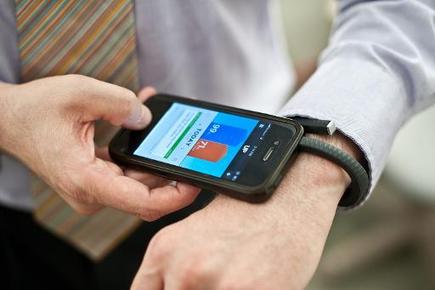Courir quelques minutes chaque jour est aussi bénéfique qu’un long jogging
29/07/2014Australia’s Physical Activity and Sedentary Behaviour Guidelines – Physiopedia, universal access to physiotherapy knowledge.
29/07/2014Mobile tech reshaping the health sector
Your smartphone is not only your best friend, it’s also become your personal trainer, coach, medical lab and maybe even your doctor.
« Digital health » has become a key focus for the technology industry, from modest startups’ focus on apps to the biggest companies in the sector seeking to find ways to address key issues of health and wellness.
Apps that measure heart rate, blood pressure, glucose and other bodily functions are multiplying, while Google, Apple and Samsung have launched platforms that make it easier to integrate medical and health services.
« We’ve gotten to a point where with sensors either in the phone or wearables gather information that we couldn’t do in the past without going to a medical center, » says Gerry Purdy, analyst at Compass Intelligence.
« You can do the heart rate, mobile EKGs (electrocardiograms). Costs are coming down, and these sensors are becoming more socially acceptable. »
The consultancy Rock Health estimates 143 digital health companies raised $2.3 billion in the first six months of 2014, already topping last year’s amount.
Recent studies suggest that people who use connected devices to monitor health and fitness often do a better job of managing and preventing health problems.
A study led by the Center for Connected Health found that people who use mobile devices did a better job of lowering dangerous blood pressure and blood sugar levels.
A separate study published in the July 2014 issue of Health Affairs found that data collected by devices is not only useful for patients but can help doctors find better treatments.
« When linked to the rest of the available electronic data, patient-generated health data completes the big data picture of real people’s needs, life beyond the health care system, » said Amy Abernethy, a Duke University professor of medicine lead author of the study.
Some firms have even more ambitious plans for health technology.
Google, for example, is developing a connecting contract lens which can help monitor diabetics and has set up a new company called Calico to focus on health and well-being, hinting at cooperation with rivals such as Apple. And IBM is using its Watson supercomputer for medical purposes including finding the right cancer treatment.
Read more at: http://phys.org/news/2014-07-mobile-tech-reshaping-health-sector.html#jCp
Source: phys.org




